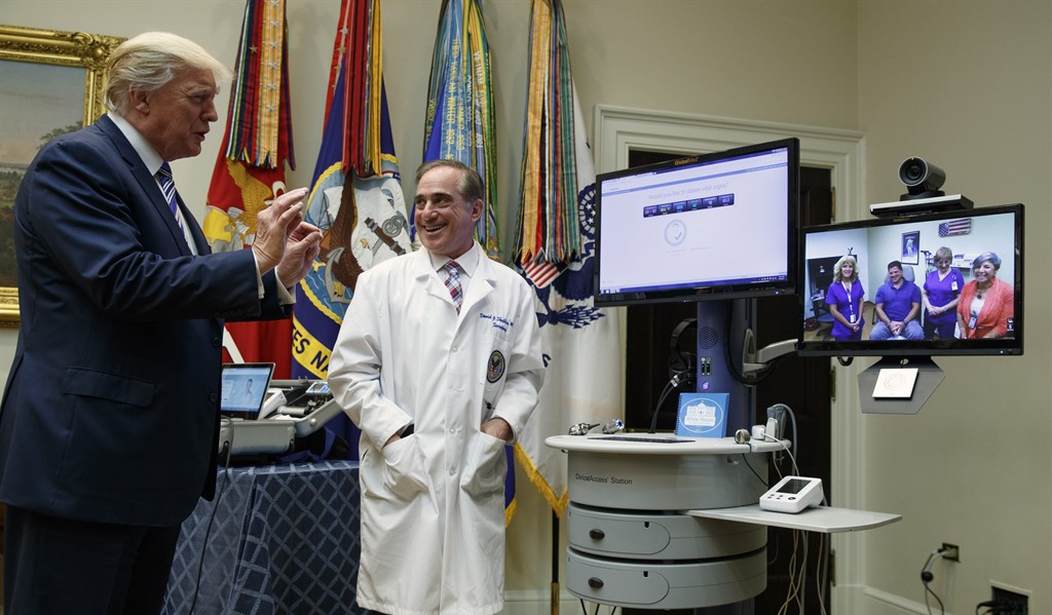Telehealth expansion has been a hot topic throughout the country over the past year. One of the few silver linings of the COVID-19 pandemic is that it brought into question outdated regulations that limit access to high-quality, convenient, and innovative health care via smartphone apps.
Telehealth is defined by the Department of Health and Human Services as “the use of technology to deliver health care, health information or health education at a distance.” Allowing patients to meet with their doctor remotely, during times that suit their schedule is a no-brainer in today’s world. Although telehealth is not a total replacement for traditional in-person health care, it is more affordable and accessible for patients, especially those in rural or underserved communities.
Like many states, Connecticut recently made a significant step toward increasing patient-centered care by passing HB 5596, which codifies the governor’s executive order to roll back regulations and remove barriers to telehealth. Several other states moved forward with telehealth expansion programs following an executive order by former President Donald Trump on Improving Rural Health and Telehealth Access, which added more than 60 services to the Medicare telehealth list.
The decision by the Centers for Medicare and Medicaid Services (CMS) to finalize telehealth expansion dramatically improved health care access for millions of Americans. Such is why more states should follow a similar path to expand telemedicine. In fact, throughout 2020, the Trump administration increased the use of telehealth services for patients on government-run health care programs. It would be wise for the Biden administration to expand this list even more.
During the height of the pandemic, millions of patients were severely limited in their options to receive routine health care. A recent study found that more than 40 percent of Americans delayed or avoided medical procedures and appointments out of fear of possibly contracting COVID-19 in a health care facility.
Not to mention, preventative care significantly decreased due to fear of contracting the virus. For instance, Hoag Memorial Hospital Presbyterian in Newport Beach reported mammograms dropped as much as 90 percent during the height of the pandemic. Of course, this fear would have been significantly downgraded had telehealth services been widely available during the pandemic.
What’s more, support for telehealth as an option for care is becoming more popular, especially with the ease of using a mobile app. Over the past decade, technological advancements have transformed all aspects of our lives. Telemedicine should not be excluded. Indeed, according to a 2016 survey, 80 percent of telehealth patients accessing care via a mobile app preferred telehealth service over traditional in-office visits.
With bipartisan support, state and federal legislators should work together to expand telehealth options for patients. Expanding telemedicine is a win-win for everyone simply because it offers more accessible, convenient care at a lower cost.
Connecticut made a huge step toward supporting patient-centered care by expanding the scope of telehealth services in the Constitution State. Yet, there is much more to be done.
To permanently codify telehealth expansion for the entire country, congressional action at the federal level is required. It is important to note that during the pandemic, several age-old health care processes were called into question based on efficiency, including regulations blocking telemedicine expansion.
To combat the virus, industry barriers had to be removed and/or reformed. As the pandemic subsides and more states reopen, it would be beneficial if more health care regulations (such as certificate of need laws) were reexamined in light of today’s technologies and medical innovations. With the legislative session coming to an end for many states, time is of the essence to move forward with telehealth expansion. Going forward, ample access to telehealth services should be a priority for all states and the federal government.
Christina Herrin ([email protected]) is the government relations manager at The Heartland Institute, a nonpartisan, free-market think-tank headquartered in Arlington Heights, Illinois.












Join the conversation as a VIP Member